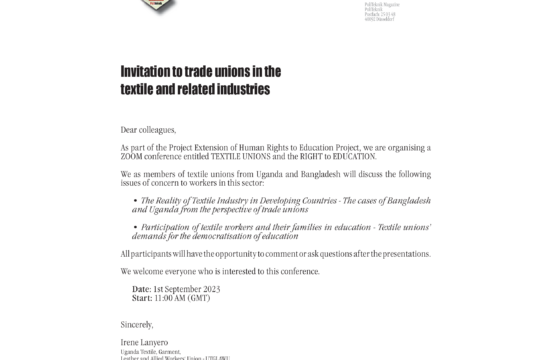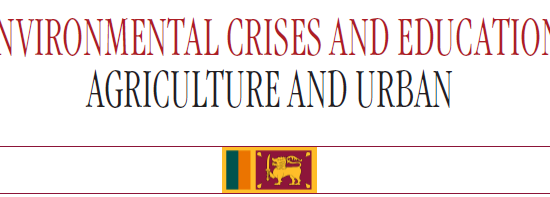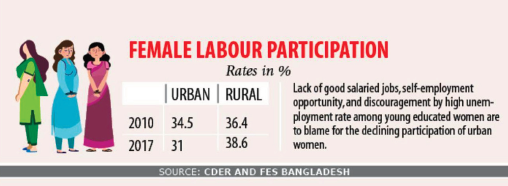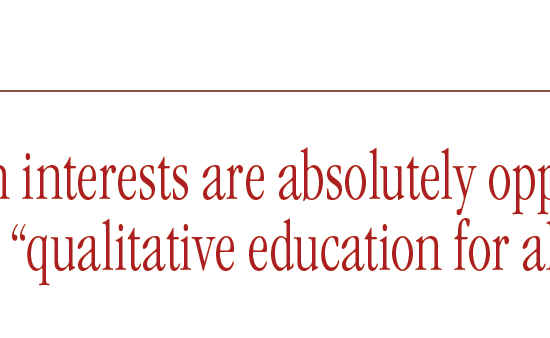Dr. William Epstein
University of Nevada, Las Vegas | UNLV · School of Social Work – USA
Feasting is an important program for the United States and modern society, indeed a transformative possibility for humane social policy considering present existential threats.
The United States faces many deep challenges to its preferred way of life. The peril to American families is first on the list. Divorce rates are enormous, children are abandoned, and people become impoverished as barely sufficient family incomes must now sustain two households. Divorce rips apart grandparents from grandchildren and in-laws from their children’s spouses. The psychological damage of divorce and child neglect is enormous and the economic consequences of depressed people who take inordinate numbers of mental health days and slack off at work are proportionately large. It is well known that poor mental health leads to poor physical health as the depressed seek solace in drugs, alcohol, and food binges. Family members throughout the generations desperately need to reinforce their commitments to each other.
In addition, an immense amount of energy goes into fertilizer and mechanized farming to produce beef and other meats. The run-off from fertilizer is damaging the oceans and its fishes. Moreover, the diversion of cropland to grow feed for cattle reduces the production of cereals for human consumption thus driving up costs for necessities and increasing the hunger of poor populations in the third world. Eating farmed meat is a slap at global warming and efforts to reduce the carbon footprint of human beings.
While much of the world is starving, Americans are immensely overfed, in large part because of their seeming addiction to meats. Related obesity is a huge problem in the United States. A leaner diet would not only preserve American lives but reduce morbidity – fewer heart problems and less diabetes — and the national outlay for costly medical care.
Costly medical care is in large part, but of course not entirely, related to sustaining the comatose well past any reasonable surmise that they can be brought back to life. Clinging to life weighs on both the dying and their families. The elderly in America have little sense of completion and largely because, as noted above, families are fragmented but still stewing in the hostilities, recriminations, and bitterness of imperfect relationships. But too, their children, guardians of their living wills, are ever hopeful of a final reconciliation and so seek to defer the death of their loved ones as long as possible. If only their parent would regain consciousness, they pray, all could be set right before the inevitable, irreversible, and final demise. If some final act of reconciliation were possible, the comatose would gladly slide into oblivion and their children would gladly sit by without any guilt.
Moreover, the care of elderly in the US is a travesty. Many are abandoned and forgotten, consigned to solitude and very poor nutrition. Indeed, the poor nutrition of the elderly is implicated in the early onset of many chronic conditions, notably Alzheimer’s, that are, again, very expensive to treat.
In addition, the American way of death is phenomenally expensive and dependent on some of the worst hucksters we have ever allowed to become a profession. There is hardly an American who has parted from a loved one without being gouged for burial plots and cemeteries, caskets, urns, services for the departed, embalming and the rest. Most feel that they were sorely taken advantage of during the vulnerability of their grief by the mortuary professions.
What could encourage family reconciliation and stronger families, lower health care costs, nurture healthier Americans, reduce the nation’s carbon footprint, realize a brighter prospect for the world’s poor, decrease the costs of bidding farewell and rid the nation of the blight of final hour chicanery?
Hey, let’s eat grandma, grandpa, and just about everyone else who passes on.
This program analysis begins with an emphatic clarification. Feasting IS NOT CANNIBALISM, a disgusting remnant of primitive society. Cannibalism is the murder of the living in order to harvest flesh for either ritualistic or nutritional purposes. I repeat, cannibalism is murder. In contrast, feasting on loved ones and the noble departed is an affirmation of life and the living; it is adamantly opposed to creating the dead.
Feasting is the ultimate ritual of family solidarity. The assurance that the dying will live on in the flesh and souls of their descendants, families, neighbors, and friends, loosens their grasp on life relaxing them into a comfortable death. At long last, they glide into peace without endlessly picking over difficult relationships, without guilt, without having to say I am sorry. All is forgiven as the beloved dead are organically sealed with the living. Feasting is unconditional love.
The living are similarly spared the anguish of self-scrutiny as they ingest their parents, relatives and friends in a ritual that absolves them of any wrong and ennobles them for forgiveness. Feasting also expresses gratitude to the dead for slipping off in a timely way and preserving the inheritance. Feasting is tasty.
Feasting allows the dying and the living to get on with family life, inexpensively, joyously, gratefully and respectfully. With each feast the married children of the departed renew their own marital vows. Family bonds are strengthened; families are preserved.
The feast itself raises ritualistic gravity with songs, dances, commemorative speeches, games for children such as hide and seek Grandma’s collar bone, prayers, and storytelling. Family ritual builds bulwarks of commitment.
I consulted experts in writing The Sentimental Butcher – a guide for catering feasts. I made inquiries at the Wotho center on the island of Ailinglaplap in the Marshall Islands. The Ailinglaplap aborigines are a poor, nutritionally challenged people who have been cannibalizing each other since time immemorial. By the way, when the natives were asked by the World Bank what the bank might do to lessen their poverty, their response was remarkably consistent: send more missionaries. There is some humor in the fact that the early missionaries introduced the metal pots in which they were boiled. After all, Stone Age primitives could only roast each other.
Iffali Wat a connosieur of folk traditions and the director of the Wotho Community Center sent back a savory recipe. They call it Missionary Stew. It begins with two instructions: first, sew up the mouth and then be sure not to cook with the Bible. It would be sacrilegious and cause terrible indigestion. In any event, it should be obvious that you do not have to have a Mormon for Mormon Stew just like you do not need an Irish person for Irish stew.
Feasting is natural, even primordial in its pleasures. Our ancient animal memory buried deep in the ancient stem of our brains lusts to consume its own species. Vestiges still abound: the pleasure we take in sucking up the blood that seeps from our little cuts and scratches. Yummm. Recall when you were out camping, and your love interest was bitten by a rattler: you bent to the task of sucking out the venom but had to restrain the instinct to swallow the blood. Remember when you were in the Amazon jungle during a lightening fire and began gagging over what you thought was the smell of burning monkeys. It was only burning monkey hair. But as the fire calmed the delicious smell of roasted primate flesh caused you to drool, especially if it had fallen into a garlic patch while cooking. Yes indeed we try to deny the biological in our own animal natures.
Vegetarianism is the ultimate denial of feasting. Rather than promoting humanism and a green earth, vegetarianism undermines all the benefits of feasting to both our own people and the Third World’s poor. Vegetarians are selfish, deeply troubled human beings who would be liberated from their anxieties guilt and fears through feasting. But if they were smart enough to feast they would not be vegetarians to begin with. It is a point of riotous hypocrisy that the vegetarian, ever so piously protective of animal species, is indifferent to the suffering that their food mania causes among vegetables. The shriek and squeak of lettuce as it is ripped apart, the torture of boiling broccoli, the gasping suffocation of asparagus in vinaigrette, the agony of oven roasting potatoes, the pleas, the moans and the tears of Brussels sprouts ripped from the mothering arms of their natal stalks. The vegetarian is conveniently, even neurotically, oblivious of the tortured vegetable. Vegetarian cruelty is beyond the curative abilities of psychotherapy. Something sterner needs to be used.
Feasting provides a number of ancillary benefits:
The elderly will be well cared for in their declining years and especially in the few months before death. No more scraggly-assed old ladies and whisper thin old men. People will understand that for rump roast ya’ gotta’ have a rump.
Those who die unclaimed by families will be charitably shared with orphanages. The little lonely ones will go to sleep with warmed, round stomachs and comforted psyches, having enjoyed concrete evidence that they are loved. A whole-body donation provision in one’s will is a sacrament of life.
Feasting will stimulate small business growth, art and literature: jewelry design and construction, reliquaries for the remains, urns, and memoirs of the afterlife, edible tattoos, among others. Think of the definitive fashion statement made by wearing preserved ears with a pearl insert as earrings or cufflinks, bone necklaces, even the heads of the beloved shrunk and worn as pendants on memorial occasions. Delicatessens for cured flesh. And without irony or a sense of superiority, even the export of surplus bodies to the starving third world. The employment possibilities are enormous.
Day trippers from abroad, notably Canada and Mexico, will flock to America for tastings, swelling the tourist trade and improving our balance of payments.
Feasting further offers countercyclical macroeconomic benefits. Greater mortality during hard times will enhance the supply of high-quality protein leading to improved nutrition among survivors that stimulates their contributions to the economy without increasing taxes.
Not least of all, feasting refreshes the meaning of finger food.
There are a few additional considerations:
Just as there was initial resistance to adopting automobiles, phones, computers and monogamy, there will certainly be a reluctance among several people to accept feasting especially if vegetarians maintain their prominence. Movement feasters need to advocate, lobby, and publicize: tee shirts, conventions, community sing-a-longs, bake sales and recipe competitions. For a generation or two politics will be obsessed with the struggle between feasters and gaggers. But reason and Pepto-Bismol will eventually triumph.
Further, some few will not be eaten. As the ultimate punishment for terrible crimes some will not be tolerated as feast food; the nation will refuse to eat them. Their souls will roam the afterlife even as feasting supplants salvation as the ultimate soul-quest of believers.
To sum up the meaning of feasting — for centuries, human beings have been consuming each other but now, with compassion, wisdom and good manners through feasting.











